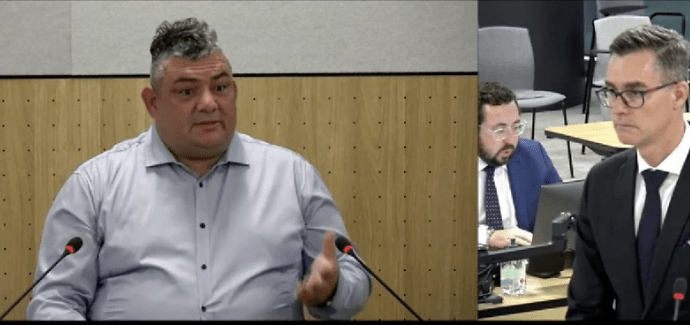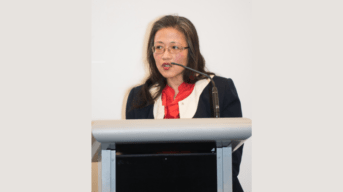
Justen’s experience giving evidence to the Disability Royal Commission
Justen works at Council for Intellectual Disability as a member of our Advocacy Team. He took a central role in our Justice Matters campaign. He has also done peer support work at the Intellectual Disability Rights Service (IDRS) and spoke about justice issues at the United Nations in Geneva.
In this interview, we ask Justen about his experience giving evidence to the Disability Royal Commission.
Why did you want to give evidence to the royal commission?
Because I felt people need to know what it was like for someone like me who has a disability and vulnerable and what it was like to be targeted constantly by law enforcement. I needed help, but got hard handed police and jail time for being homeless instead.
How did you get into trouble with the law?
I got into trouble with the law for hanging around the wrong crowd, sleeping on trains and sleeping at train stations. I was homeless as I ran away from an abusive kids refuge and I kept getting fines for not paying for train tickets. The fines kept on escalating and I couldn’t pay for them. Eventually I was arrested because I didn’t pay the fines and then I was locked up.
What support did you get to tell your story to the Royal Commission?
I got assistance to tell my story from the Intellectual Disability rights Services (IDRS). They helped me with things like talking through my experiences and talking to a lawyer. I had many meetings to prepare to tell my story at the Royal Commission. All of this support and preparation helped me to tell my story better.
I flew from Sydney to Brisbane the day before I gave evidence. I am used to travelling, I love travelling so I wasn’t scared to go by myself. The Disability Royal Commission staff met me at the airport and took me to my hotel. Me and my support person then went to the Disability Royal Commission offices. When I got there, they showed me around and made me feel comfortable and welcome. I got to meet other people there and do a practice session for my evidence.
What happened on the day you gave evidence?
I was a little bit stressed about giving evidence in the morning, the person who supported me told me it all was going to alright and I felt a bit better. It took me many years to get to this point.
I dressed up formally, had breakfast and coffee then went to the Disability Royal Commission with my support person and also one of my friends came to support me too. I felt like I had a lot of support around me.
The room I gave evidence in was a small room with the commissions and lawyers. They asked me many questions and listened to my story. I also gave them recommendations on how to make things better in the justice system for people with disability.
What did you like about telling your story?
I liked that I could tell my lived experience lived through my eyes and to tell them how I have been hard done by the law enforcement and how to make things better. I also gave recommendations. I said that I think there should be support programs for people who get into trouble with the law.
You spoke to the media about giving evidence, what was that like?
Yes I spoke to the media a few times. The day before I spoke to them I went through it with a support person about things I was going to be asked. We wrote a lot of it down to get prepared.
I told them about my experience, my story and how things could be better. The story went into the media nationwide. It was good to tell my story.
What would you tell others who are thinking about telling their story?
I had been holding back and suffering about my experiences for many years, I felt relieved to get it off my shoulders and to help and make a difference.
It can be hard to speak up I know, I kept quiet for many years. You can be brave and get support like I did.
I recommend if you have a story to tell, please come forward, it is important to tell your story, help others and heal through telling your story. There is lots of support out there for you like there was for me.
Justen Thomas
Advocate at CID
JAS participant



 1800 424 065
1800 424 065 













